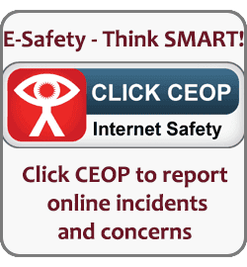 Useful home activities supporting internet safety are available here
Useful home activities supporting internet safety are available here
Online learning
The experts are telling us that we shouldn't be trying recreate a school environment in the home. It will take time for everyone to adjust to these sudden changes in lifestyle. These are difficult times; we need to take things slowly, and not place too much pressure on all members of the family unit. There are, however, some amazing resources that are available for children and young people which can be both entertaining and educational – many of which are provided through our pages.
The important thing is to try to develop some sort of routine for children and young people while they are faced with the possibility of weeks or even months at home. For example, try to make a plan for each day which allows time for some online games, school work, reading, watching TV, exercising, and catching up online with friends and relatives. All of these things are important, and tech clearly has a role to play but be sure to factor in plenty of off-tech activities too.
Be mindful of online contacts and connections
Clearly social media platforms provide an excellent way to keep in touch; something which is vital given the fact that so many of us are having to socially distance ourselves for the foreseeable future. It is worth reiterating, however, that social media can also open up the possibility of communicating with strangers – this is not in itself a bad thing (depending on the age of the users), but children and young people should remember that they can never fully be aware of who they are talking to online, and that they are free to shut down any conversations which make them feel uncomfortable in any way. As with general online safety advice, children and young people should talk to their parent or carer if this is the case.
Choose your tools carefully
Now that many children (and parents) are staying at home, there will inevitably be a rise in the amount of time spent online and a wide range of social media platforms will be used. If children and young people suddenly find themselves with more time on their hands, they may well decide to experiment with new social media platforms. Parents should remember that many of these sites have age restrictions and it is important to understand the type of content that users might be exposed to. Remind yourself of how the privacy settings work on particular sites and of how to report a problem if you have one.
Keep personal information private
Similarly it is important to think carefully about any personal information that might be shared – given many of us will be confined to our homes, boredom could set in and people could find they are lower their guard with regards to social media, perhaps sharing more personal information than they would normally, or taking less care of identifying factors which might be in the background of a photo or livestream.
Think before you share
It's an old mantra, but one that's so important in the current situation. People are naturally concerned by the events across the globe and there is a huge amount of content online and on social media which is talking about coronavirus and the impact it is having. It is easy to be shocked or scared by something that you see, but equally it's important to verify that the content being shared is genuine.
It is easy to use these times to whip up fear and concern, but this must be avoided. The internet is a great place to keep up to date with the latest developments but, for reliable information relating to the virus and what is happening, official websites are the way to go – for example, the World Health Organization (WHO) provides regularly updated advice for the public, as are many national governments.
It's equally important not to repost or share anything unless you're able to validate the source and the fact that it is reliable.
Sources of additional support and advice
As is often the case with a crisis, challenging times can bring out the best and the worst in people but let's try and focus on the positives. Dialogue and discussion is the most important thing in all of this – we have to keep talking to each other, whether virtually or face-to-face!
Think-u-know have provided some useful resources to support eSafety at home - click the link.
The experts are telling us that we shouldn't be trying recreate a school environment in the home. It will take time for everyone to adjust to these sudden changes in lifestyle. These are difficult times; we need to take things slowly, and not place too much pressure on all members of the family unit. There are, however, some amazing resources that are available for children and young people which can be both entertaining and educational – many of which are provided through our pages.
The important thing is to try to develop some sort of routine for children and young people while they are faced with the possibility of weeks or even months at home. For example, try to make a plan for each day which allows time for some online games, school work, reading, watching TV, exercising, and catching up online with friends and relatives. All of these things are important, and tech clearly has a role to play but be sure to factor in plenty of off-tech activities too.
Be mindful of online contacts and connections
Clearly social media platforms provide an excellent way to keep in touch; something which is vital given the fact that so many of us are having to socially distance ourselves for the foreseeable future. It is worth reiterating, however, that social media can also open up the possibility of communicating with strangers – this is not in itself a bad thing (depending on the age of the users), but children and young people should remember that they can never fully be aware of who they are talking to online, and that they are free to shut down any conversations which make them feel uncomfortable in any way. As with general online safety advice, children and young people should talk to their parent or carer if this is the case.
Choose your tools carefully
Now that many children (and parents) are staying at home, there will inevitably be a rise in the amount of time spent online and a wide range of social media platforms will be used. If children and young people suddenly find themselves with more time on their hands, they may well decide to experiment with new social media platforms. Parents should remember that many of these sites have age restrictions and it is important to understand the type of content that users might be exposed to. Remind yourself of how the privacy settings work on particular sites and of how to report a problem if you have one.
Keep personal information private
Similarly it is important to think carefully about any personal information that might be shared – given many of us will be confined to our homes, boredom could set in and people could find they are lower their guard with regards to social media, perhaps sharing more personal information than they would normally, or taking less care of identifying factors which might be in the background of a photo or livestream.
Think before you share
It's an old mantra, but one that's so important in the current situation. People are naturally concerned by the events across the globe and there is a huge amount of content online and on social media which is talking about coronavirus and the impact it is having. It is easy to be shocked or scared by something that you see, but equally it's important to verify that the content being shared is genuine.
It is easy to use these times to whip up fear and concern, but this must be avoided. The internet is a great place to keep up to date with the latest developments but, for reliable information relating to the virus and what is happening, official websites are the way to go – for example, the World Health Organization (WHO) provides regularly updated advice for the public, as are many national governments.
It's equally important not to repost or share anything unless you're able to validate the source and the fact that it is reliable.
Sources of additional support and advice
As is often the case with a crisis, challenging times can bring out the best and the worst in people but let's try and focus on the positives. Dialogue and discussion is the most important thing in all of this – we have to keep talking to each other, whether virtually or face-to-face!
Think-u-know have provided some useful resources to support eSafety at home - click the link.

